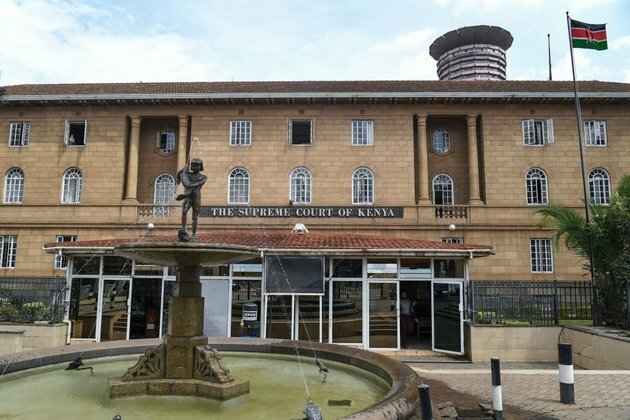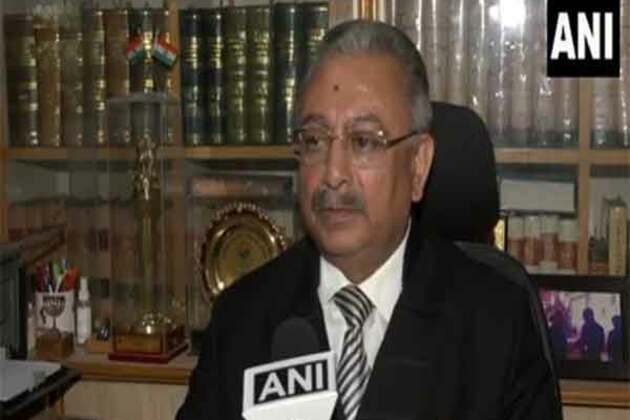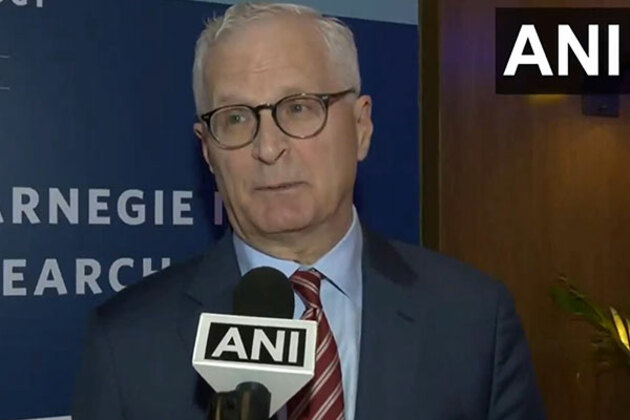How Kenya's judiciary can break the cycle of electoral violence
The Conversation
18 May 2022, 19:09 GMT+10

Kenya is no stranger to highly contested elections, including those pervaded by political and ethnic violence.
When there is no finality to elections, or if some parties refuse to accept the official results, the process cannot support democracy. It does not produce a legitimate government with a right to exercise power and the ability to meet the needs of all citizens.
As Kenya heads to the polls in August 2022, it's important to consider what role the judiciary will play in ensuring that the elections are free, fair and credible.
As a legal expert and economist who studies the rule of law in Africa, I argue that Kenyans need to work towards ensuring both individual and institutional judicial independence.
The former implies that individual judges can decide cases without interference. The latter means that courts are independent from the executive and legislative branches of government.
For the courts to perform their job effectively, including resolving elections-related conflicts, they must be independent. Additionally, Kenyans must have trust, confidence and faith in their judgements.
Read more: Drivers of electoral violence in Kenya: red flags to watch out for
Unlike the executive, the judiciary cannot send soldiers out to enforce its orders, nor can it deny development aid to a community to gain support for its decisions. The court's power is derived from its legitimacy.
This comes from a general belief and understanding that adhering to the court's rulings is the right thing to do. To safeguard this legitimacy, judges must function and be seen as officials of the judiciary, and not as representatives of the ethnic group to which they belong.
Judicial wins
Kenya is a young democracy and so is its judiciary. However, the country's courts have exhibited a significant level of maturity and independence in recent years.
This was evidenced by the supreme court's unprecedented decision in the aftermath of the disputed 2017 presidential election results. A six-judge bench annulled the incumbent President Uhuru Kenyatta's win. The court ordered a new election in 60 days, which Kenyatta won.
In 2021, the high court intervened in a push fronted by the government to amend the constitution. It declared the process unconstitutional.
Reflective of a country with increasingly strong democratic institutions and an independent judiciary, Kenyatta accepted the court's ruling. The government, nevertheless, decided to move to the appeals court and the supreme court, as required by the constitution. The two courts upheld the initial ruling.
Kenya's judiciary, however, needs to continue to expand its own infrastructure and build professional capacities. This includes setting up an effective system to finance the judiciary so that it isn't held hostage to changes in the country's politics. Opportunistic politicians shouldn't be able to punish the courts for legally sound but unpopular decisions.
An efficient, equitable and accessible justice system is the foundation of a democracy based on the rule of law.
The courts and elections-related conflicts
Kenya's 2010 constitution was designed to help "reconcile a deeply divided nation". It provided mechanisms for citizens to peacefully resolve elections-related conflicts and bring finality to them.
The constitution grants citizens the power to challenge the election of a president in the supreme court.
This court also determines the validity of the presidential election. Its capacity to do so has been successfully tested. Official results from the August 2017 elections showed Kenyatta had been re-elected president with 54.27% of the votes. This was against opposition leader Raila Odinga's 44.74%.
The top election official at the time, Wafula Chebukati, and several international observers argued that the election was free, fair and credible. The opposition cried foul and said the election had been marred by irregularities.
There were fears of a repeat of the ethnic-induced violence that accompanied the 2007 elections.
Read more: Kenya has its first female chief justice: why this matters
Kenyatta encouraged the opposition to take their concerns to the courts. It did, and on 1 September 2017, the court made its historic ruling, annulling the presidential election results.
The real lesson from the 2017 supreme court decision was not that it granted the opposition another chance to capture the presidency or deprived the incumbent of his electoral win. It was that it reaffirmed the country's move towards constitutionalism, peaceful resolution of conflict and the rule of law.
Although Kenya's judiciary has proven itself capable of serving as an effective arbiter of elections-related conflicts and bringing finality to elections, there remain many challenges to the country's democracy.
These include the politicisation of ethnicity. This is evidenced by the pressure imposed on judicial and other officials to act in favour of one ethnic group or another.
Ethnicity and Kenya's struggle for peace
Kenya is a state that was founded by bringing together distinct groups. Each had its own customs, cultures and traditions, as well as laws and institutions.
The challenge the country faces today is how to make this forced marriage work to achieve peaceful coexistence, wealth creation and inclusive development.
Citizens continue to vote largely for people from their own ethnic group. This politicisation of ethnicity has created many challenges to Kenya's efforts to deepen, entrench and institutionalise democracy.
First, it allows members of the country's five largest ethnic groups to dominate national governance.
Second, it forces political elites to seek consent from their ethnic bases instead of developing more broadly appealing programmes.
Third, it puts pressure on civil servants and elected officials to act as ethnic, rather than country, representatives.
Read more: How Kenya could move away from the politics of ethnicity
Kenya's democracy cannot function effectively if its public officials, including its judges, serve as representatives of their ethnic groups. In performing their jobs, civil servants and politicians must be accountable to the constitution and the people of Kenya.
It is only through such an approach to public service that citizens can have trust in their institutions and leaders, including the decisions that they make.
Author: John Mukum Mbaku - Professor, Weber State University 
 Share
Share
 Tweet
Tweet
 Share
Share
 Flip
Flip
 Email
Email
Watch latest videos
Subscribe and Follow
Get a daily dose of Kenya Star news through our daily email, its complimentary and keeps you fully up to date with world and business news as well.
News RELEASES
Publish news of your business, community or sports group, personnel appointments, major event and more by submitting a news release to Kenya Star.
More InformationAfrica
SectionColumn: Folly of "reciprocal tariffs": How America's trade war harms its own people, global economy
A car passes through the Peace Arch border crossing heading to the U.S. from Canada in Surrey, British Columbia, Canada, April 10,...
'John Wick' director Chad Stahelski praises Academy for honouring stunt community at Oscars
Washington [US], April 11 (ANI): Popular stuntman and filmmaker Chad Stahelski, who is known for directing the 2014 film 'John Wick',...
UAE, Seychelles discuss boosting parliamentary cooperation
DUBAI, 11th April, 2025 (WAM) -- The UAE Parliamentary Friendship Committee with African Parliaments at the Federal National Council...
Penguin blamed for helicopter crash in South Africa (IMAGES)
No one on board was harmed during the accident, including the bird South African authorities have announced that a helicopter which...
Explainer: Why are U.S. tariff hikes self-defeating?
A trader works on the floor of the New York Stock Exchange in New York, the United States, on April 8, 2025. U.S. stocks closed sharply...
Russia boosts wheat exports to Africa
First quarter shipments abroad totaled 11.8 million tons, according to statistics ...
World
SectionVegetable oil price surge stabilizes global food costs in March
PARIS, France: A spike in vegetable oil costs helped steady global food prices in March, offsetting declines in other staples like...
Netflix expands language tools to boost global viewing
LOS GATOS, California: As international content fuels its global growth, Netflix is expanding its language tools on TV to help users...
Netanyahu's passover message acknowledges national pain, resilience
Tel Aviv [Israel], April 11 (ANI/TPS): In his Passover address to the nation, Prime Minister Benjamin Netanyahu acknowledged the empty...
"Getting someone extradited from America is not easy": Delhi BJP legal cell chief Anil Soni on Tahawwur Rana's extradition
New Delhi [India], April 11 (ANI): Lauding the efforts of the Union government over the extradition of the 26/11 attack accused Tahawwur...
India heading in right direction, has opportunities to vacuum up more of US supply chain: Semiconductor Association CEO John Neuffer
New Delhi [India], April 11 (ANI): Noting that India is doing a lot of right things to boost its semiconductor sector, John Neuffer,...
CFU applauds bipartisan progress on Uyghur Policy Act of 2025, urges full house approval
Washington, DC [US], April 11 (ANI): Campaign for Uyghurs (CFU) commends the progress of the Uyghur Policy Act of 2025 (H.R. 2635),...













